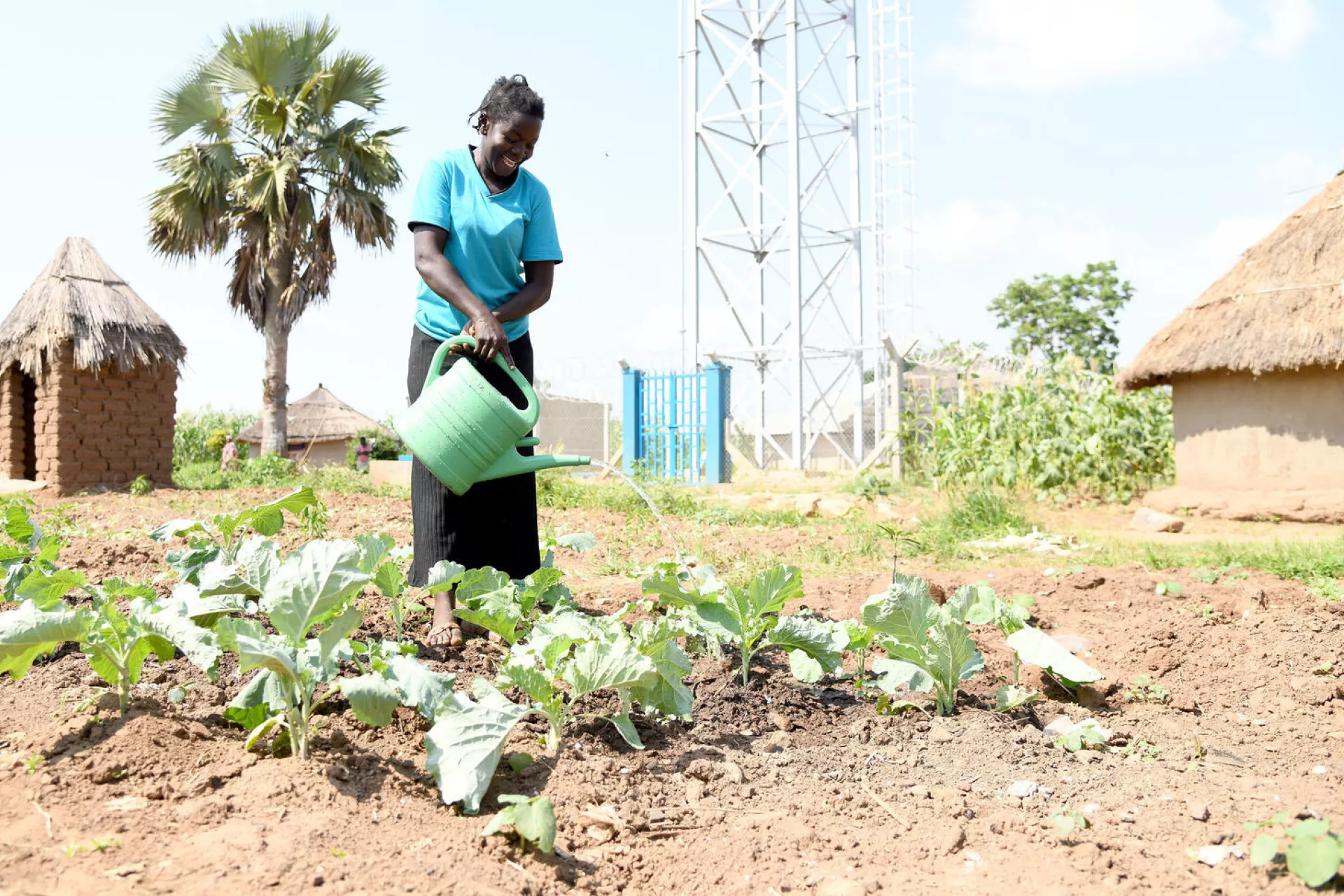Of water, vegetables and better parenting...
One mother’s story of how access to water is improving the social and economic welfare of families in West Nile

Bako Avati counts herself as both mother and father to her four children. Ever since the 44-year-old was abandoned by her husband, she has had to single-handedly fend for her children.
As her daughter dropped out of school at an early age due to lack of school fees, Bako was determined that the rest of her children would stay in and complete school unlike many other children in her community in Mireyi Settlement in Mireyi Central Village, Illinyi Parish, Ofua Sub-County in Adjumani District in northern Uganda.
Bako thus joined a village savings and loan association that interested the members in vegetable growing. She started growing vegetables initially for home consumption but with increasing family needs and the realization of the market for vegetables at the trading centre, Bako decided to sell some. Though a community organization supplied watering cans to facilitate the irrigation of the vegetables there was only one problem - water, or the lack of it. The one borehole serving the entire community always had very long lines that got even longer during the dry season.
“It was just so hard to spend so much time walking to the borehole, then lining up for water, then actually having to water the garden and repeat the process again every day, while still managing my other duties,” Bako reveals. The vegetables would often dry up because they weren’t watered, and with them, Bako’s hope for a steady income.
That was until a village water system was set up under the EU-IGAD COVID-19 Response programme.
Funded by the European Union, managed by UNOPS, coordinated by IGAD and implemented by UNICEF, GIZ, IOM, TradeMark East Africa and UNOPS, the programme is mitigating the health and socioeconomic impact of COVID-19 across the IGAD sub-region. UNICEF set up the water system in 2021, which consists of a pump house, solar panels, distribution lines and 13 tap-stands distributed in the entire settlement and trading centre of Mireyi.


I no longer think about my husband,” Bako says with a laugh, “the vegetables have been a source of food and income and I can now be both mother and father to my children.”
Bako currently uses the credit line to pay for school feeding for one of her sons in his final year of primary school and for remedial teaching for two other sons in upper primary.
The village savings and credit scheme also has been very helpful in financing Bako’s critical family needs. She recalls when her son in Primary Four at Mireyi Primary School fell sick in April 2022 and she had to use about UGX60,000 (US$15.5) of her savings for his treatment at a private clinic as the nearby health facility did not have the necessary drugs.
“I am glad that I am able to save and also borrow from my village savings scheme when I need some money,” Bako says, adding that she hopes to continue educating her children and eventually acquire her own piece of land.
Bako is so grateful for the water system that has turned around her life that she volunteered to become a member of the village water user committee that oversees the proper use and maintenance of the water system. Bako willingly makes her monthly contribution of UGX2,000 (US$0.51) for maintenance of the water system and mobilizes other community members to do the same.
“Because of the many benefits this water has brought me, I do not want any disruptions to the system,” Bako says.
The water system at Mireyi is one of 2 water systems set up by UNICEF in Adjumani District under the EU-IGAD COVID-19 Response programme. Under this programme, UNICEF is ensuring supply of clean and safe water to over 6,000 individuals in 4 villages (Mireyi central, Amelo, Palemo and Tamana villages) in the district, including Mireyi Primary school. Of the 6,000 population, the majority of these are women/mothers and children.




